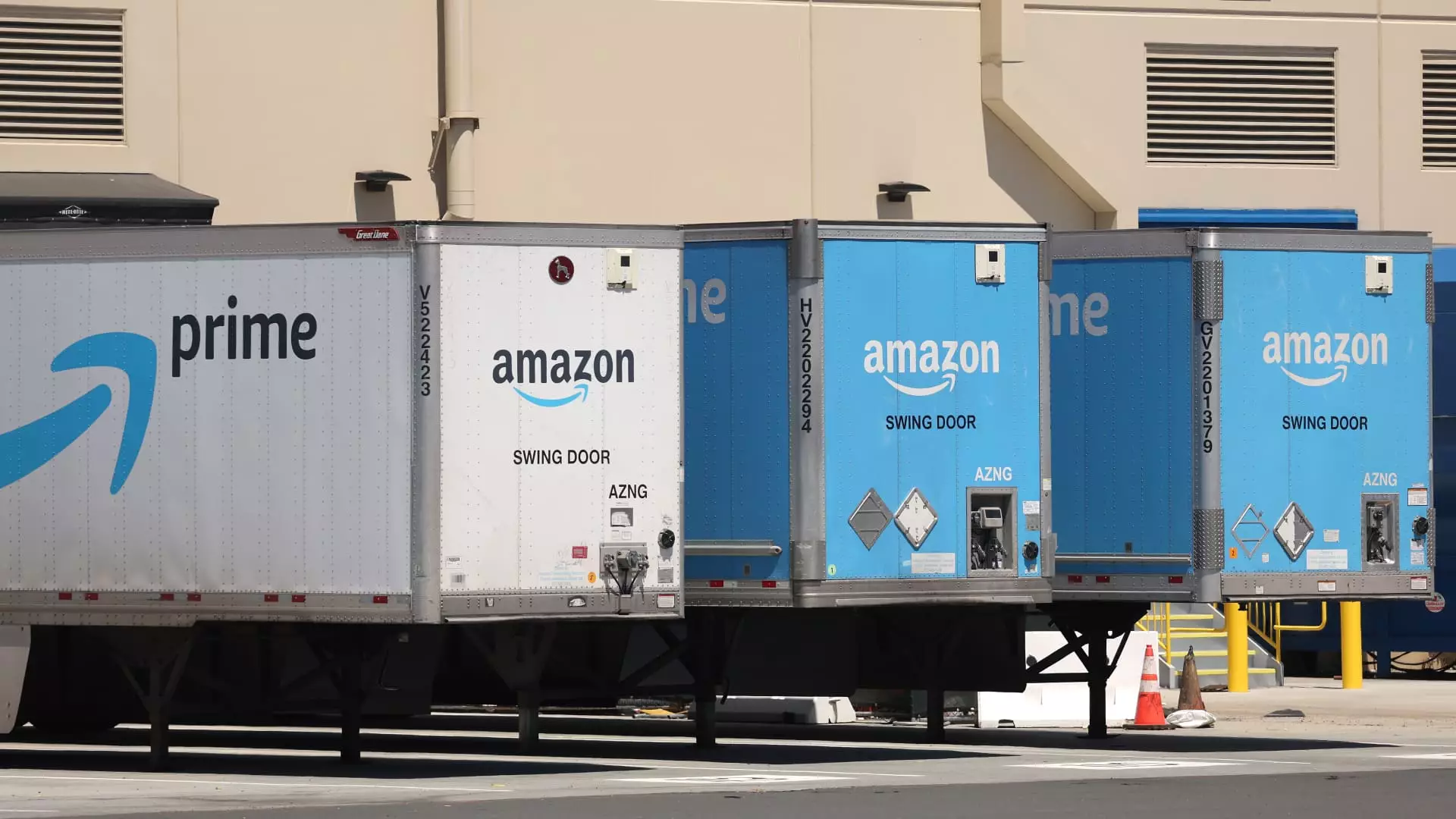In an age where technology has revolutionized logistics, we find ourselves confronted with the grim reality of cargo theft. Recently, officials from the Department of Justice (DOJ) unveiled a shocking investigation into an Armenian organized crime ring accused of pilfering over $83 million worth of cargo from Amazon. By masquerading as legitimate truck drivers, these criminals executed a systematic scheme that raises serious questions about the vulnerabilities in our supply chain. This incident is emblematic of a broader issue; organized crime has adapted to our modern systems with alarming efficiency, and the ramifications extend far beyond mere financial loss.
Cargo theft is not merely a nuisance; it is a complex crime that has evolved into a significant threat to retailers everywhere. According to experts, these heists collectively result in annual losses that skyrocket toward $1 billion. While Amazon may be in the spotlight here, it is vital to recognize that this issue stretches across the entire retail landscape, impacting small businesses and consumers alike. We must ask ourselves: how long can we allow these criminals to exploit the system without adequate response from law enforcement and regulatory bodies?
The Underbelly of “Self-Styled Carriers”
The criminal operations detailed by the DOJ expose a deeply troubling trend in how organized crime networks operate under the guise of legitimate commerce. The so-called “self-styled carriers” are not merely miscreants; they represent a sophisticated model of deceit, taking advantage of apps like Amazon Relay, which are designed to streamline logistics for honest service providers. By diverting delivery loads and manipulating routes, these criminals operate with a near-impunity that is both shocking and infuriating.
What makes this situation particularly insidious is the fact that many of these criminals could easily blend into the ranks of everyday truck drivers. The complexity of their operations would suggest a high level of planning and collaboration, raising eyebrows about the existing protections meant to shield legitimate businesses from exploitation. As a conservative thinker, it is frustrating to see how red tape and inaction have become the hallmarks of our governmental response to these threats.
A Call for Greater Accountability in E-Commerce
Amazon has ramped up its efforts to track and eradicate fraudulent activities, as evidenced by its investigations into third-party sellers who unwittingly become entangled in these consequential schemes. Yet, one must wonder if these efforts will be enough. Witnessing a company of Amazon’s stature struggle to cope with the complexities of cargo theft exposes a significant gap in our understanding of e-commerce security. Additionally, the narrative that sellers sometimes claim ignorance puts their businesses at risk, ignites a larger dialogue about accountability. Who bears the burden when a crime is committed in a digitally driven marketplace?
The DOJ’s findings also link many of the arrested individuals to a plethora of other serious offenses ranging from attempted murder to health-care fraud, catalyzing an essential question: are we truly dealing with simple thieves, or have we scratched the surface of a more extensive criminal network that poses existential threats to public safety? It’s time to recognize that a fragmented approach to crime prevention is inadequate. Concerted, unified efforts from e-commerce giants, law enforcement, and policymakers are essential to dismantle these syndicates before they expand further.
The Role of Community Engagement
The role of local communities cannot be overlooked in the fight against organized crime. Community awareness can serve as a powerful deterrent against the shadowy figures operating within our neighborhoods, and grassroots initiatives can be more effective than any government program. Encouraging community vigilance and implementing educational programs centered around e-commerce fraud could foster a culture of collective responsibility.
Ultimately, as we painstakingly dissect this troubling incident, it becomes abundantly clear that a multi-faceted response to this evolving crime is essential. From stronger legal frameworks to enhanced security measures and community collaboration, our approach must be as multifaceted as the crime itself. The time for complacency has long passed; if we are to shield our economy and our communities from such predatory behaviors, it is imperative we act decisively, and swiftly. The stakes have never been higher.

